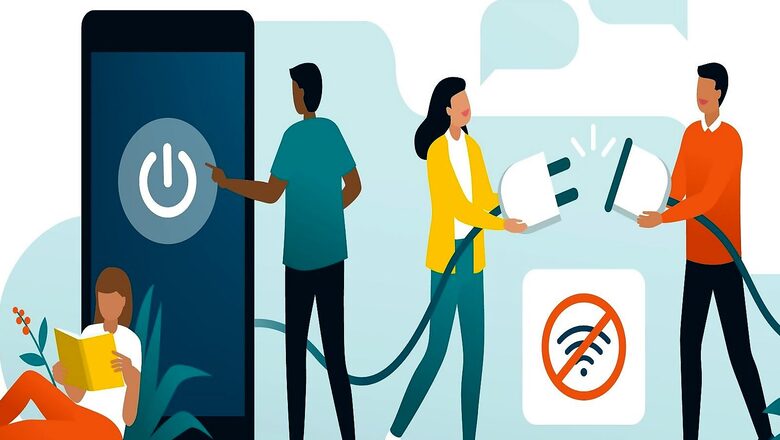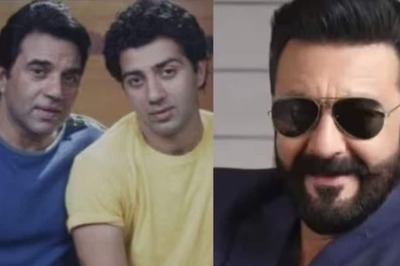
views
In a human being’s life, this phase carries special significance for developing mental health, since most mental and substance use disorders (MSUDs) onset at a young age or during adolescence, and many tend to run a chronic or relapsing course. A sudden spike in deteriorating mental health among youth and increasing cases of substance abuse, depression, and anxiety has been highlighted by experts. About 20-25 per cent of young people suffer from MSUDs worldwide.
The National Mental Health Survey of India estimates the current prevalence of mental disorders in the age group of 18-29 yr at 7.39 per cent (excluding tobacco use disorder) and lifetime prevalence at 9.54 per cent. The prevalence of mental disorders (excluding SUDs) in the age group of 13-17 yr is reported to be 7.3 per cent. Young people also suffer a high rate of self-harm, with suicide being a leading cause of death. About half of all mental illnesses are known to begin by the age of 14 and three-quarters by mid-20s. Since the MSUDs tend to have a chronic relapsing course, taking care of the mental health of the young people becomes a priority.
To discuss the issue further of youth and mental health, News 18 reached out to Dr Samir Parik, an eminent Psychiatrist and the director of the Department of mental Health and Behavioural Sciences at Fortis Healthcare.
Here are edited excerpts from the interview:
As the conversation around the consumption of drugs especially by youth has resurfaced after the Mumbai drugs case, why is today’s youth pushed to consume drugs, and does it also mean that we lack de-addiction treatment facilities?
Prevention of addiction and substance is the key solution. This also starts with schools and colleges where we create awareness, here we need role models of youth to talk about total abstinence from substance use. This false narrative of coolness around drugs needs to be ‘absolutely stopped’. Also, the portrayal of drug abuse in media is to be really looked at within. There has to be significant self-censorship when it comes to substance consumption. We need to have early detection, early intervention for young people wherever they start consuming substances and all of this needs to be looked at- if we want to look at substance abuse and prevent it.
India has been reporting a massive number of cases of mental illness, including depression and anxiety, especially among the younger generation. Do you think it is a ticking bomb?
I don’t think it is India reporting a large number of cases, the cases are rising globally. If you look at depression, nearly 300 million people globally are suffering, anxiety 240 million-plus million people globally. The numbers have been rising for a while. It is not that COVID has drastically changed it, but it has been there for a few years now. What one needs to understand is that depression is the single largest illness in the world and if you also look at data- worldwide 10% of all the disease burden currently is on psychiatry, neurological, substance abuse and as a non-fatal disease category, the burden becomes 30%. So that’s the kind of prevalence mental illnesses have, this means that the world in itself is sitting on a mental health epidemic for the past few years. Maybe we are talking about mental health now, post our Covid-19 experience, but the world has been sitting on it, and not just India.
What changes can be made on the ground-level and policy level to improve the Indian mental health infrastructure?
Let’s split these changes into parts- when it comes to government intervention, the authorities have come up with a national suicide prevention policy, the National Mental Health Plan. And on ground level, in the insurance sector- we need more companies in the field so that more and more people can be benefited. As currently mental illnesses are not covered in health insurance policies.
Second, I feel we need to start looking at preventive primary approaches- In schools there should be a mental health curriculum, teachers should be given basic counseling skills as there is a massive dearth of professional counsellors in our country. The same practice should be adopted in colleges. When it comes to workplaces mental health outcomes approach towards mental wellness and wellbeing prioritising that is something that needs to be looked into. The public-private partnership should be encouraged, as a large part of the professionals in our country are working with the private sector.
We also need a way to figure out how to increase the number of experts-, we can do this by increasing the number of seats in medical colleges, increasing the number of psychology seats in universities. I think the biggest game-changer has been when India acknowledged digital mental health or ventured into digital health. If telemedicine can be enhanced in mental health we will be able to bridge the outreach gap a lot.
During the testing times of pandemic, social media has proven to be both a boon and a bane (for making SOS calls and increasing stress, anxiety), what advice do you have for people and especially for youth on the usage of social media for better mental health?
No debate around it. We have seen that social media has given us so many benefits. Several people connected with each other, they helped and supported, brought in positivity in each other’s lives and everyone was able to connect with their distant relatives and friends, but at the same time, social media does have a downside. It ranges from fake news to cyberbullying to trolling, to also hand over engagement by young people, who are scrolling unnecessarily and spending more time requiring a digital detox. We need to look at both aspects. Addressing the issue, we need to do a few things like one, we should encourage youth to be media literate and the issue should be talked about in schools and colleges. Second, we need more and more role models to talk about how to interface with media, encourage youngsters for regular digital detox and motivate them to take up more hobbies, creative outlets, engage in non-digital activities.
Read all the Latest News , Breaking News and IPL 2022 Live Updates here.



















Comments
0 comment